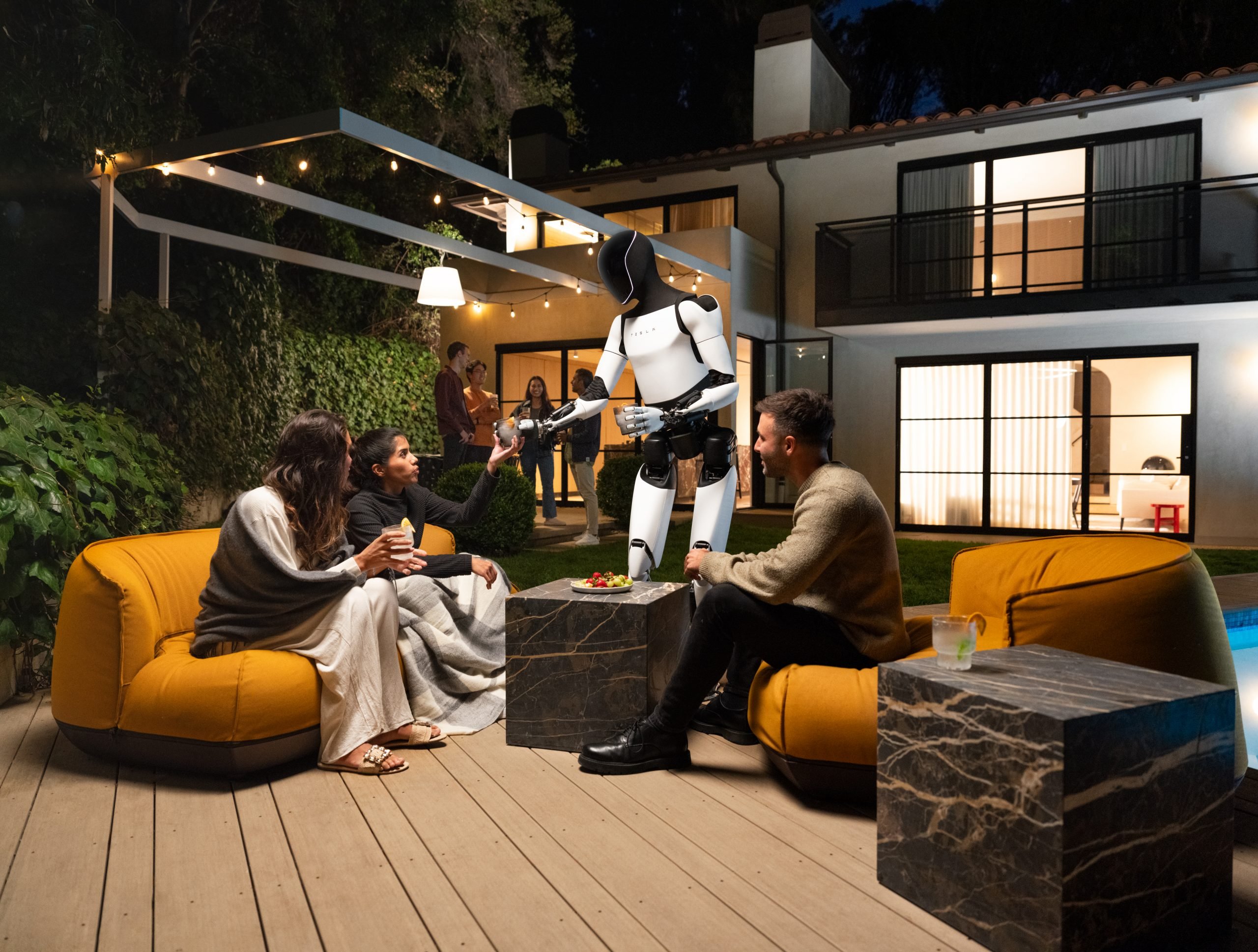
For Elon Musk, making life imitate his favorite works of science fiction has long been an amusing side game. His A.I. company, xAI, openly references Douglas Adams’s Hitchhiker’s Guide to the Galaxy and Musk has spoken candidly about the influence of Isaac Asimov’s Foundation on SpaceX.
Another of Asimov’s works, I, Robot, seems to have provided the aesthetic inspiration for Musk’s latest entrepreneurial venture: the development of self-driving vehicles and humanoid machines. Alex Proyas, who directed the 2004 adaptation of the short story, has accused Musk of plagiarizing the film’s designs, albeit playfully.
“Hey Elon, can I have my designs back please?” Proyas said in a on social media post that showed side-by-side images of Musk’s latest products and assets from the film. After noting the vision and skill of his own designers, Proyas said, “Elon Musk on the other hand has a not-so-talented design team who watched a lot of movies, including I, Robot it seems.”
Still from I, Robot (2004). Photo: Maximum Film / Alamy Stock Photo
Proyas’s response came after prototypes of Optimus (another science fiction reference), Cybercab, and Robovan were unveiled at a long-awaited October 10 event intended to showcase Tesla’s future products to investors.
Optimus appears remarkably aesthetically similar to the film’s NS-4 and NS-5 robots with both bearing sleek, light-colored components and exposed interior wiring. I, Robot’s production designer, Patrick Tatopoulos, soon chimed in, saying: “Maybe it is just me, or should I feel honored that Elon found some inspiration in my I, Robot designs.”
Tesla’s Optimus robot. Photo courtesy of Tesla.
Set in 2035, I, Robot’s humanoid characters were largely transparent and human-like with perfectly symmetrical faces. Though, as commenters pointed out, Proyas and Tatopoulos’s designs had in turn drawn from the Art Deco stylings of the maschinenmensch (the machine-human) in Fritz Lang’s 1927 classic Metropolis.
Tesla’s Cybercabs also appear similar to those in I, Robot. Both bear wing doors, low centers of gravity, and wheels that merge into the body of the car. I, Robot hired a designer specifically to design its vehicles who worked closely with German car manufacturer Audi. Then again, these similarities were to be expected at an event called “We, Robot.”
Hey Elon, Can I have my designs back please? #ElonMusk #Elon_Musk pic.twitter.com/WPgxHevr6E
— Alex Proyas (@alex_proyas) October 13, 2024
The event was filled with grand promises from Musk. The Cybercab, a completely driverless robotaxi, is set to be available for less than $30,000 by 2026. Though still in its prototype stage Musk called Optimus “the biggest product ever, of any kind.”
Once released, Musk said Optimus would be available for $20,000 to $30,000, and that “it will be able to do anything you want, be a teacher, babysit your kid, walk your dog, mow the lawn, get the groceries, be your friend.”